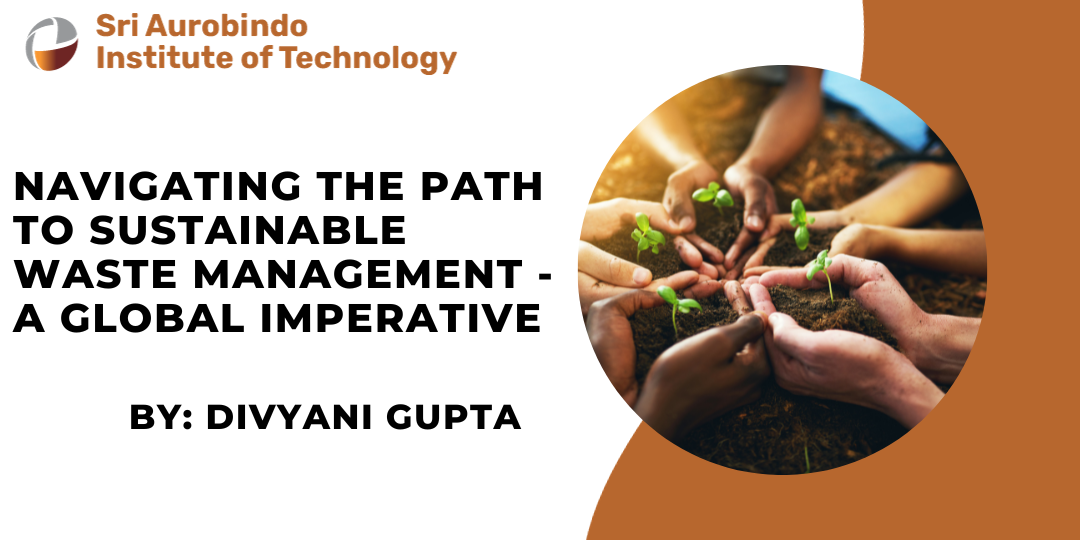Rise Of The Hydrogen Engine: A Mechanical Revolution
The automotive sector is a major contributor to global carbon emissions. To mitigate the adverse effects of climate change, transitioning from...
2 min read
Divyani Gupta : October 8, 2023

Waste management is a critical global issue that affects every facet of our lives, from public health and environmental preservation to economic sustainability. As our plant's population continues to grow and urbanization accelerates, the management of waste becomes an increasingly complex and urgent challenge.
In this blog, we will delve into the importance of waste management, explore various waste management strategies, and highlight the need for a collective effort to achieve sustainable waste management.

Waste management encompasses the entire lifecycle of waste, from its generation and collection to its treatment and disposal. It can be broadly categorized into the following phases:
This is where the waste journey begins. Waste is created by individuals, households, industries, and businesses through various activities such as consumption, production, and construction.
After waste is generated, it needs to be collected efficiently and transported to processing facilities. Effective collection systems are available to prevent littering and unsightly waste accumulation in urban areas.
Once collected, waste undergoes treatment processes that vary depending on its type. Common treatments include recycling, composting, incineration, and landfilling. The aim is to minimize the environmental impact of waste and extract any remaining value from it.
The final step in the waste management cycle involves disposing of waste in a manner that is safe and environmentally responsible. This often involves landfilling or incineration, but the goal is to reduce the volume of waste sent to these facilities.

Sustainable waste management practices are crucial for several reasons:
Achieving sustainable waste management requires the adoption of various strategies:

Despite the numerous benefits of proper waste management, significant challenges persist. These include:
To overcome these challenges, governments, businesses, and individuals must work together to promote sustainable waste management practices. This includes education and awareness campaigns, investment in waste infrastructure, and the implementation of policies that incentivize waste reduction, reuse, and recycling.

Waste management is a global issue that affects our environment, public health, and resource sustainability. It is a challenge that requires collective action at local, national, and international levels. By embracing waste reduction, reuse, recycling, and responsible disposal, we can mitigate the negative impacts of waste while preserving our planet for future generations. It's time to recognize that effective waste management is not just a responsibility but also an opportunity to create a more sustainable and prosperous world.

The automotive sector is a major contributor to global carbon emissions. To mitigate the adverse effects of climate change, transitioning from...

The automotive landscape is witnessing an unprecedented shift, with electric vehicles (EVs) heralding a new era of sustainable transportation.

Which profession is popular in India?